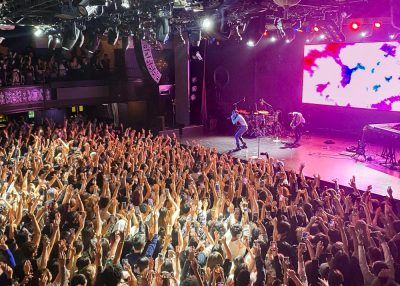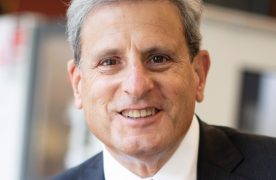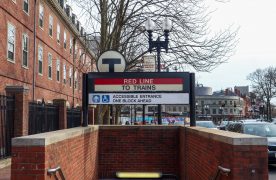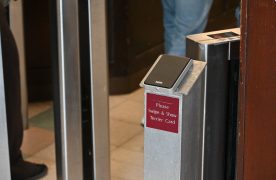For two and a half hours, Sophia Caffrey waited in an around-the-block line during Halloween weekend her freshman year. Now a junior in the College of Communication, she recalled it was the kind of fall cold that made everyone’s Halloween costumes especially uncomfortable.
Girls were crying in line, saying “I want to go home.” Caffrey and her friends, however, decided to tough it out.

“There’s no way that this would be such a big line with so many people and it’s not fun, right?” she said.
They reached the front of the line and entered into a space Caffrey likened to an improv black box theater — complete with a DJ, female dancers and strobe lights. She remembers the room being quiet: nobody was really talking to each other. The cherry on top — the bathroom was completely flooded with water, which grossed Caffrey and her friends out enough to leave.
This “black box party” was hosted by a company “notorious” for 18-and-up events for Boston students. Caffrey said she paid a “ridiculous price” for the party, and the experience made her realize it wasn’t worth it.
“‘Eighteen and up’ is marketed as this fun thing, but it’s really not,” Caffrey, who hasn’t yet turned 21, said. “It’s so much better to just hang out with your friends on the weekends.”
Catherine Merritt, a junior in the College of Arts and Sciences, said turning 21 “opens up the city a lot more.”
“Boston is so cracked-down,” she said. “You have to be 21 if you want to go anywhere special.”
But even that comes at a price, according to Devon Meth, a senior in Sargent College of Health and Rehabilitation Sciences. He said an average night out, particularly if he’s venturing into the city and away from his Allston apartment, can run him between $50 and $60. He partially attributes this expense to Boston’s lack of happy hours or special events — selling discounted alcohol is illegal in Massachusetts.
“When I visited a couple of my friends, like in Indiana or Maryland and pretty much every other place except for around here, they have gone to dollar drink night or bottomless mimosas,” Meth said.
If he could change anything about the Boston nightlife scene, it would be integrating more of those.
While Merritt is satisfied with her night life experiences in Boston so far, she expects she’ll have exhausted the city by the time she graduates next year.
“I think [Boston is] very good for undergraduate experience and nightlife,” she said. “But I think three years in the city is enough for me.”
With almost 160,000 college students living in Boston, according to a 2022 City of Boston report on student housing trends, there is a large number of individuals under the age of 21. Still, the nightlife scene rests heavily on independence, Caffrey said.
“I wish there was a way that, off the bat as a freshman, you can just meet people,” Caffrey said. “But really what it boils down to is you have to force yourself to just get out there and be social and make those awkward conversations and make friends and knock on people’s doors and stuff because there’s not really any gathering point.”
Although she now enjoys comedy shows, concerts and bars, Merritt said many of the options revolve around Greek life for students before their 21st birthdays. The famed Allston crawl — walking through the streets of Allston in search of a party — is something “everyone has to go through,” Caffrey said.
“I remember the first weekend here, I went out and I met so many people from all different schools. I was like, ‘This is crazy,’” Merritt said. “I love it, I think it’s a great melting pot. You don’t have to be 21 to experience that.”














